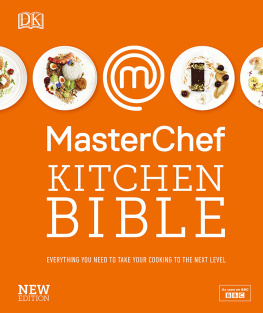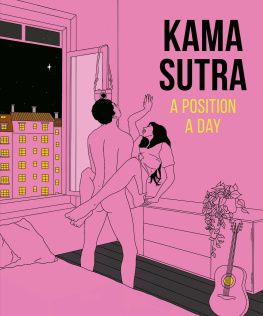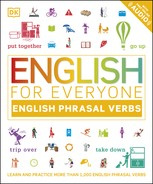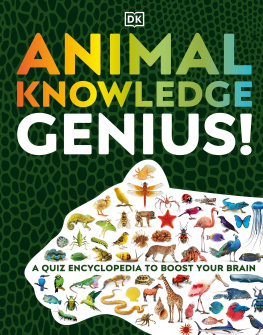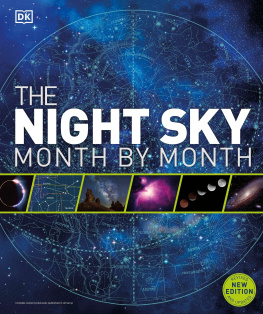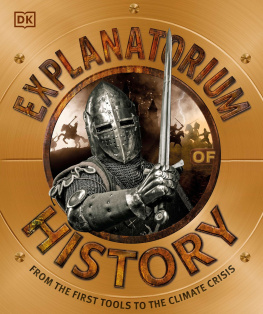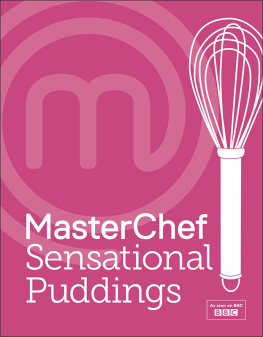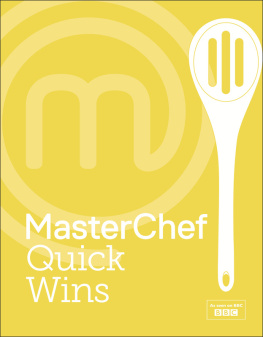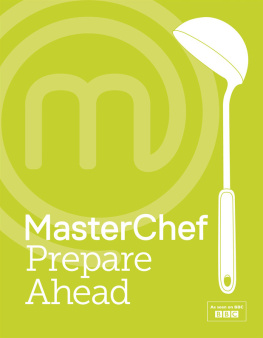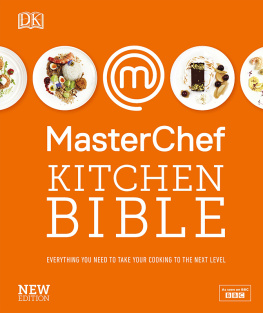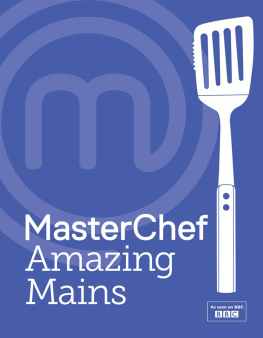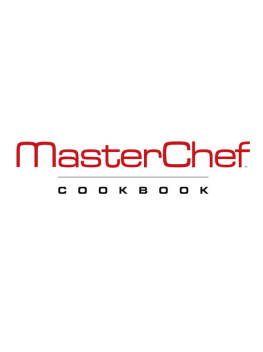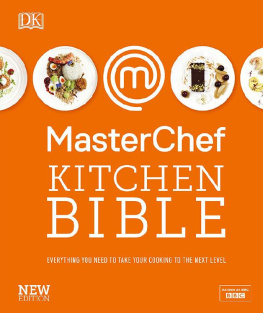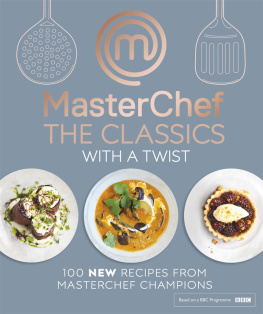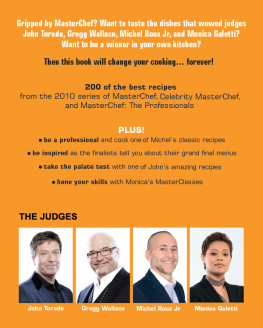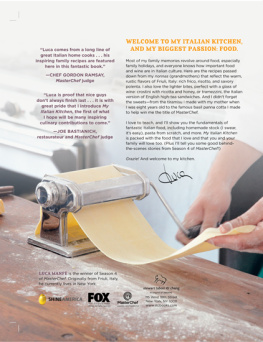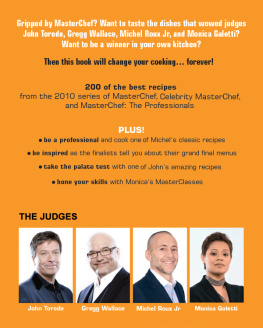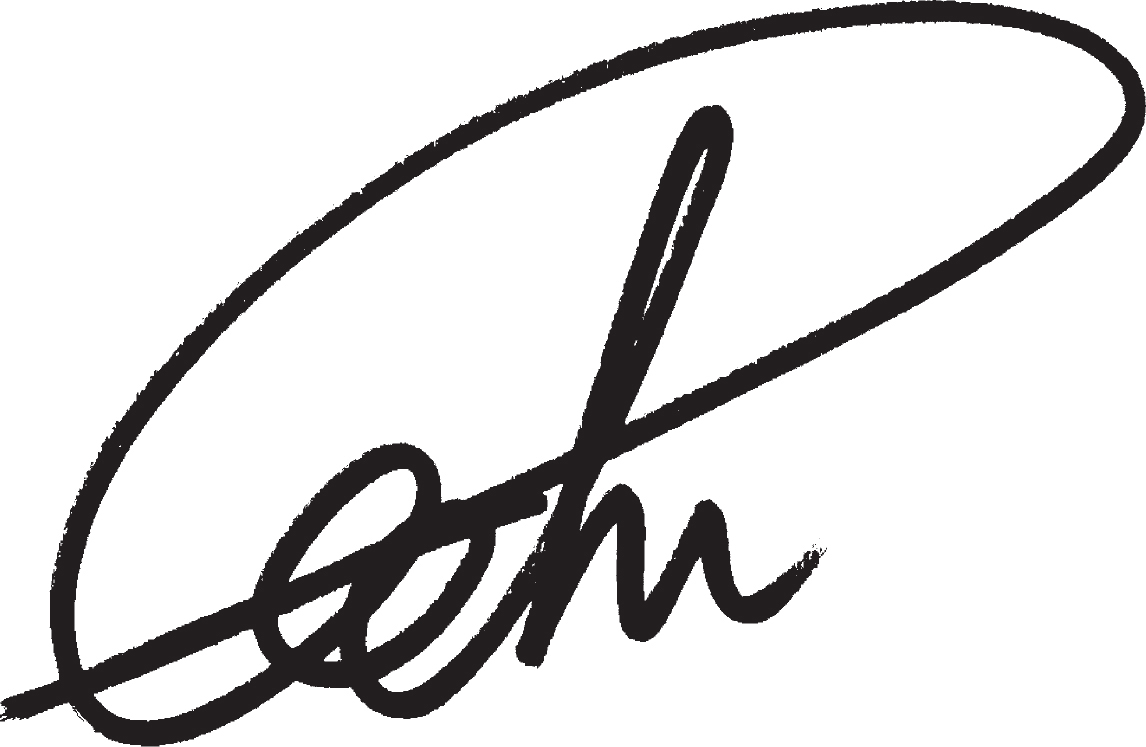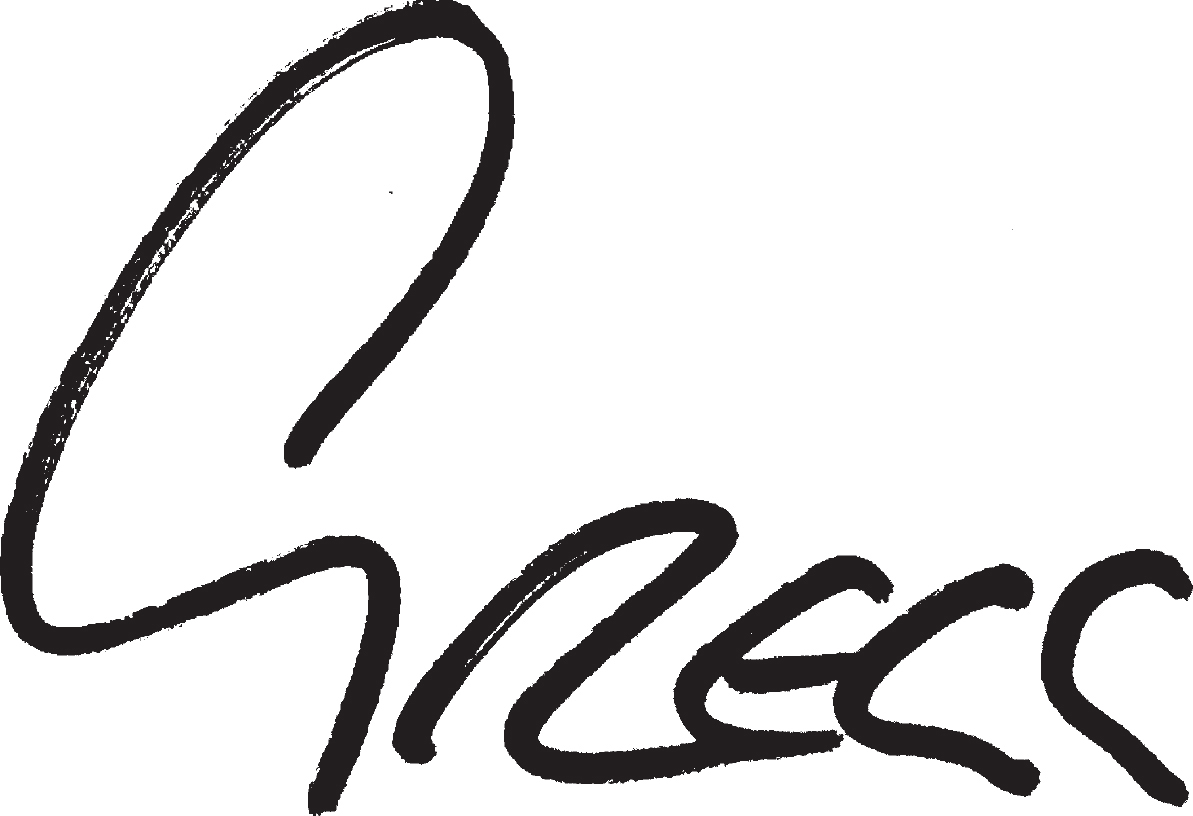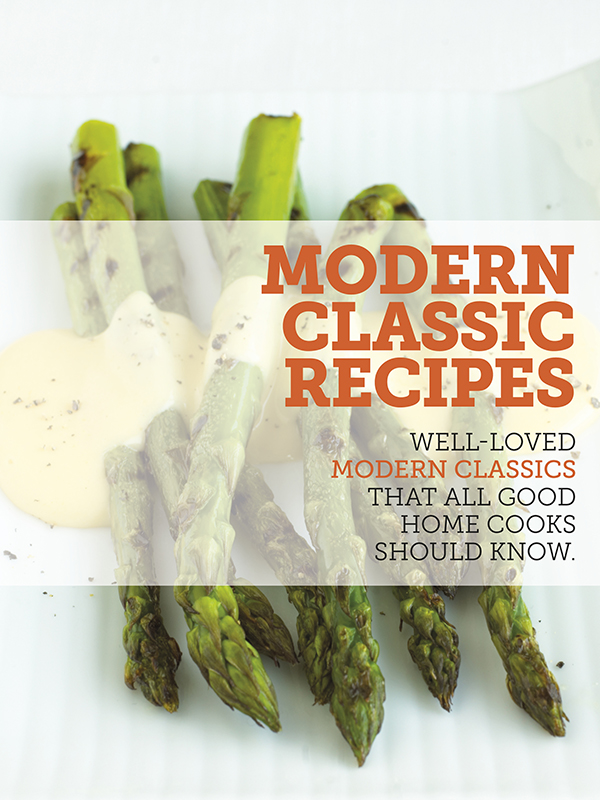Contents
Guide
John Torode
Having had the honour of working on MasterChef for over 12 years now, I have tasted some of the most fantastic food and watched many people fulfil their dreams. Food has changed and evolved over the years: weve moved from nose-to-tail eating to molecular gastronomy; from foams, airs, and splodges and splashes on the plate to the trend for serving burnt things. Youll find some of each style in this book. But before you try to reach the dizzying, restaurant-standard cooking heights of the amazing cooks who have toiled in the MasterChef kitchens, you need to know the basics.
This book is for everybody, from kitchen novices to truly adventurous and advanced cooks. It will guide you through the basics: how to joint a bird, make a custard, or create pasta dough. It will also equip you with the classic recipes that need to be in every cooks notebook: how to make a proper, fail-safe cake, simmer a stock, or make a light chocolate mousse. This book is full of skills, techniques, and tips you can perfect to become the cook you want to be. Even if you just want to learn how to chop an onion well, or perfect the ever-so-tricky Italian meringue made with sugar syrup, its all here.
Should you aspire to cook dishes from the finals of MasterChef, there are recipes from many of the ambitious and creative MasterChef finalists to inspire your cooking and show you how to take it to another level. This is where you will find the open lasagnes, French-style macarons, and even a couple of airs and foams, if you fancy that sort of thing. Some of the recipes particularly those from the most recent years are very elaborate, with many component parts and advanced techniques that challenge the most ambitious cooks, but give them a go as they are all doable.
To be a better cook, the best tip I can give anyone is that you have to practise: pick a few recipes, and cook them over and over again. Like a piece of music, the more you practise, the better it will be. Or, as a great golfer once said, The more I practise, the luckier I get!
Enjoy and good luck! Practise practise practise.
Gregg Wallace
The most expensive commodity I know of is knowledge. You either pay somebody clever for it or you learn expensive lessons through your own mistakes. Here are two things I wish someone had told me years ago.
Know your olive oil. Most of us who cook know we use olive oil for cooking and virgin olive oil for salad dressings. Even though millions of bottles are sold I rarely find anybody who knows what extra virgin and virgin olive oils are. Both are the first press, only oil with less than 1 per cent acidity can be called extra virgin.
Please, please, please use a sharp knife. It is blunt knives that slip. All my bad cuts come from blunt knives, not sharp ones.
Now, my background as a greengrocer has served me well when it comes to knowing my fresh produce. So here are some lessons for you from me.
If you want to cook great potato dishes, use the right spud. For chips you need starchy, for mash you want floury, for a gratin you should use waxy. Two decent all-rounders are the Maris Piper and, my favourite, the King Edward. And a new potato is only new if you can rub the skin off with your thumb; if you cant, its just a salad potato.
Everything else that you will ever need to know in the kitchen about fruit and veg and meat, fish, grains, cakes, and all the rest is in this book. From tips for new cooks, such as how to cut veg, to the high-end stuff, like making hollandaise sauce, its all here.
And lastly, heres a treasure Ive gleaned directly from my work on MasterChef over the years. Taste. Taste. And taste again. Its only through knowing how a food should taste, and how that flavour and texture changes with every stage of the cooking process, that you will develop the skills and refined palate of a great cook.
You may not be able to use all this knowledge straight away, so make space for it in that big brain of yours and keep this book safe, of course for use at a later date. One day, I promise you, it will all come in handy.

